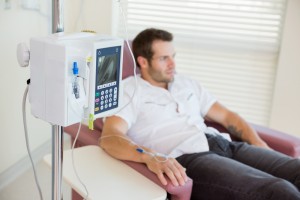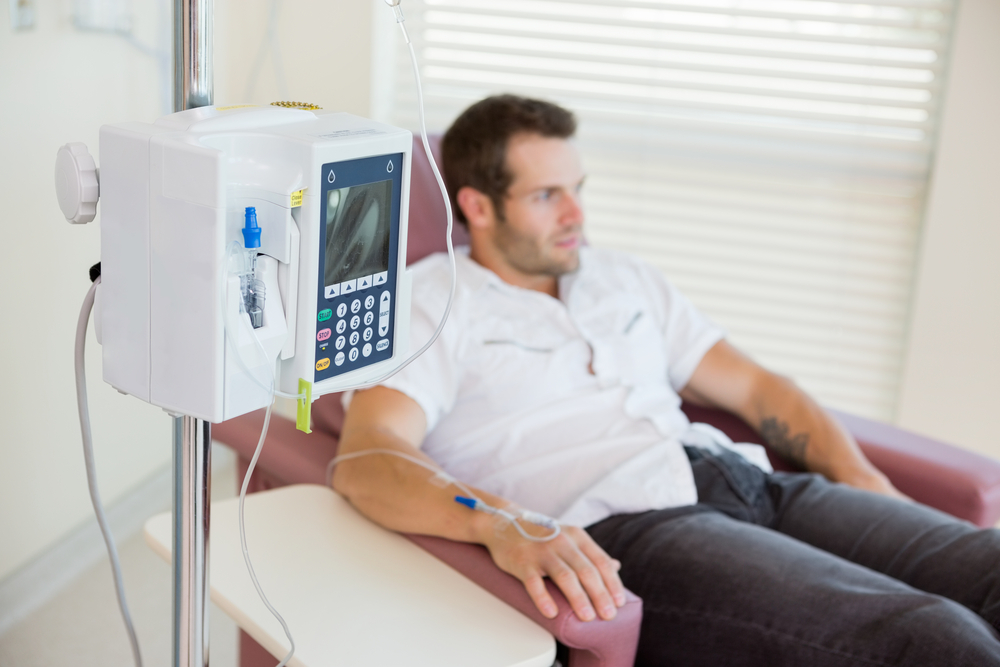 In a recent study titled “S-1 as adjuvant chemotherapy for stage III colon cancer: a randomized phase III study (ACTS-CC trial)”, published in the Annals of Oncology, Dr. Yoshida and colleagues at the Cancer Chemotherapy Center, Osaka Medical College Hospital, Osaka, Japan, designed a clinical trial to evaluate the use of oral adjuvant chemotherapy in stage III colon cancer patients, by comparing S-1 to tegafur-uracil plus leucovorin (UFT-leucovorin).
In a recent study titled “S-1 as adjuvant chemotherapy for stage III colon cancer: a randomized phase III study (ACTS-CC trial)”, published in the Annals of Oncology, Dr. Yoshida and colleagues at the Cancer Chemotherapy Center, Osaka Medical College Hospital, Osaka, Japan, designed a clinical trial to evaluate the use of oral adjuvant chemotherapy in stage III colon cancer patients, by comparing S-1 to tegafur-uracil plus leucovorin (UFT-leucovorin).
S-1, a fluoropyrimidine oral combination treatment has been commonly used in Japan to treat different gastrointestinal malignancies, as opposed to western countries, where intravenous chemotherapy is most commonly used.
S-1 is a complex combination of tegafur, aprodrug of 5-fluorouracil [5-FU], dihydropyrimidine dehydrogenase inhibitor gimeracil and oteracil, an inhibitor of 5-FU activation. Its antitumor capacity has been shown in the treatment of several gastrointestinal cancers, including metastatic colon cancer, when administered as monotherapy or in combination chemotherapy.
Dr. Yoshida and colleagues treated 1,588 patients, aged 20 to 80 years, suffering from stage III colon cancer with a daily dose of 80-120 mg of S-1 for 1 month, repeated every 6 weeks in a total of four cycles, or conventional doses of 300-600 mg/day of UFT-leucovorin.
The primary endpoint of the study was set at 3-year disease-free survival (DFS), and both treatments were equiparable in efficiency, with the S-1 and UFT group showing a DFS rate of 75.5% and 72.5%, respectively. With a stratified hazard ratio for DFS in the S-1 group compared with the UTF group of 0.85, the team managed to prove the noninferiority of S-1 in the treatment of stage III colon cancer patients.
In a recent opinion article, Dr. David Kerr, professor of cancer medicine at the University of Oxford, stated that this trial was “well designed and well conducted. It suggests that the interesting drug S-1 could be a new treatment option for adjuvant therapy in colon cancer. It is something to think through. We are struggling a little in the West with moderately toxic chemotherapy, often given in combination. This fluoropyrimidine has now been shown in a large, well-designed randomized study to be as good as UFT-leucovorin, and therefore by extrapolation, as good as conventional western 5-FU/leucovorin regimens.


